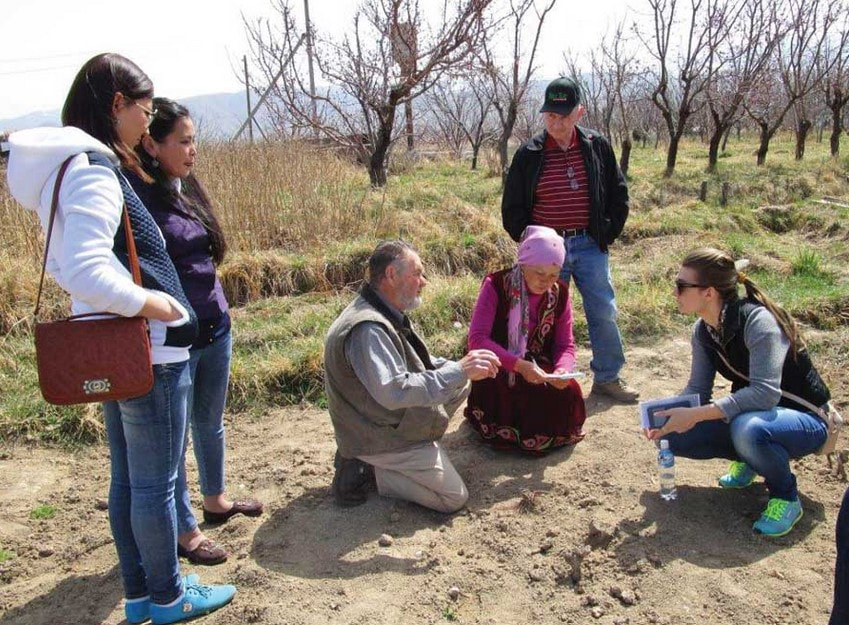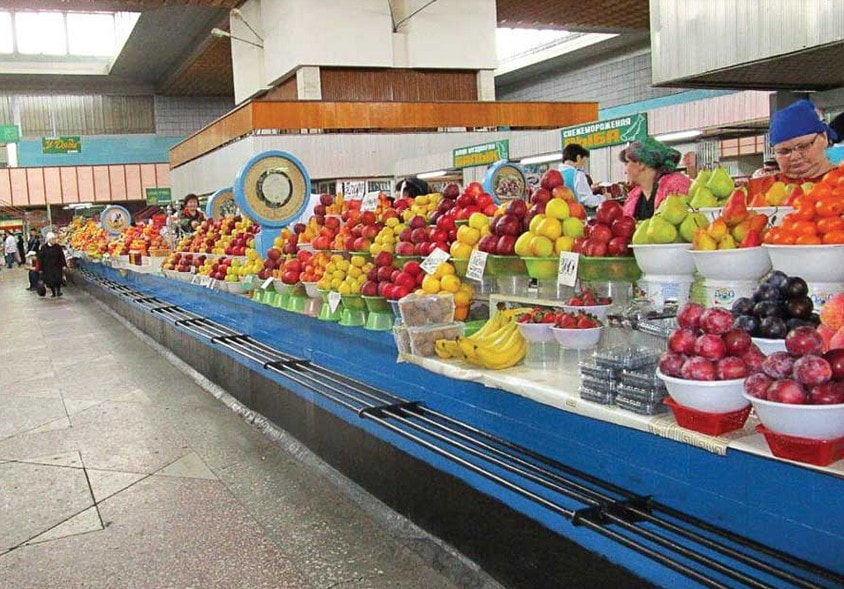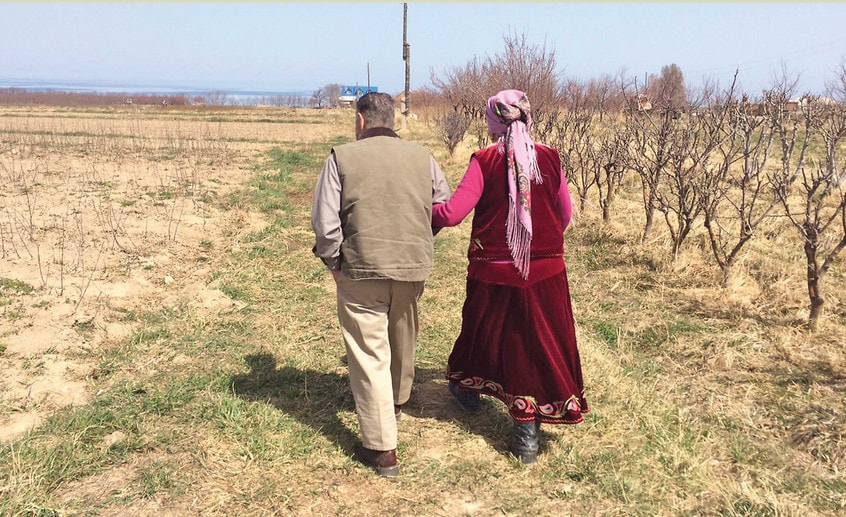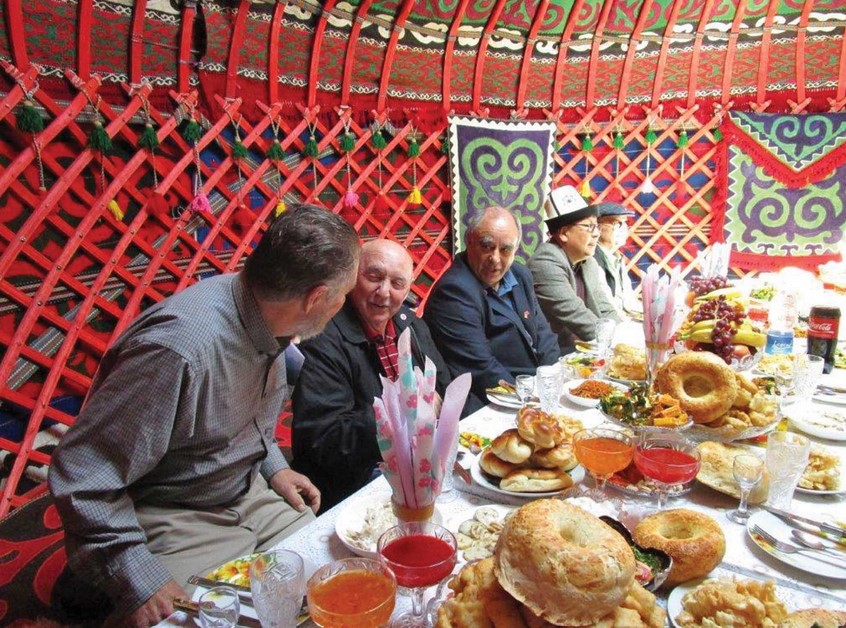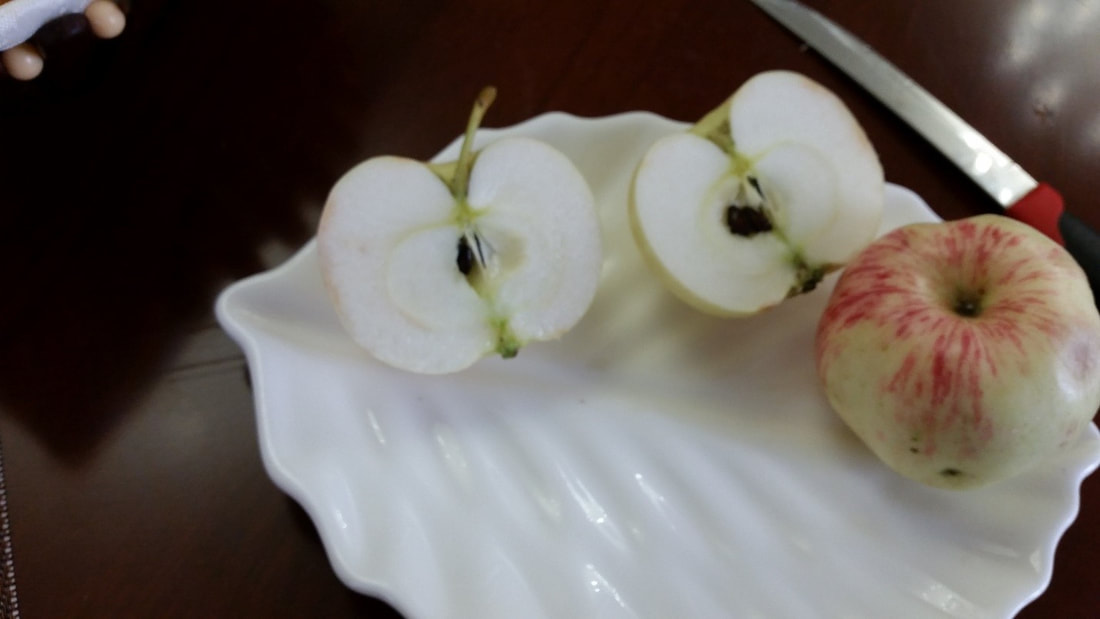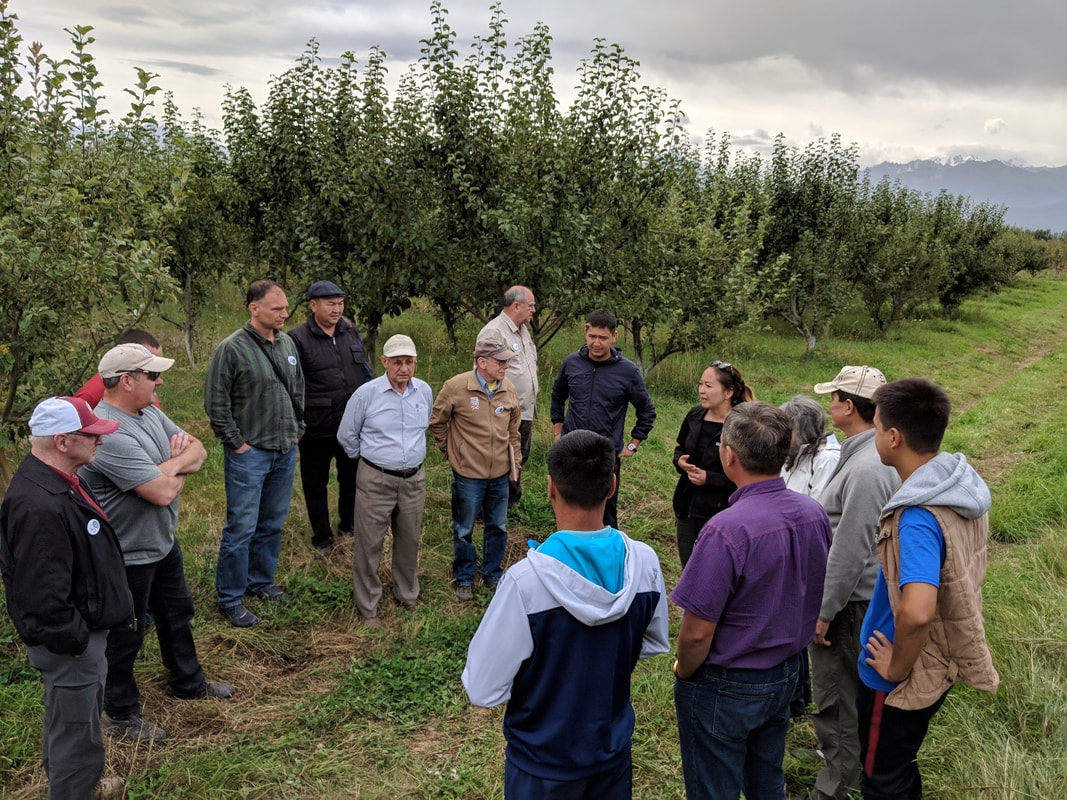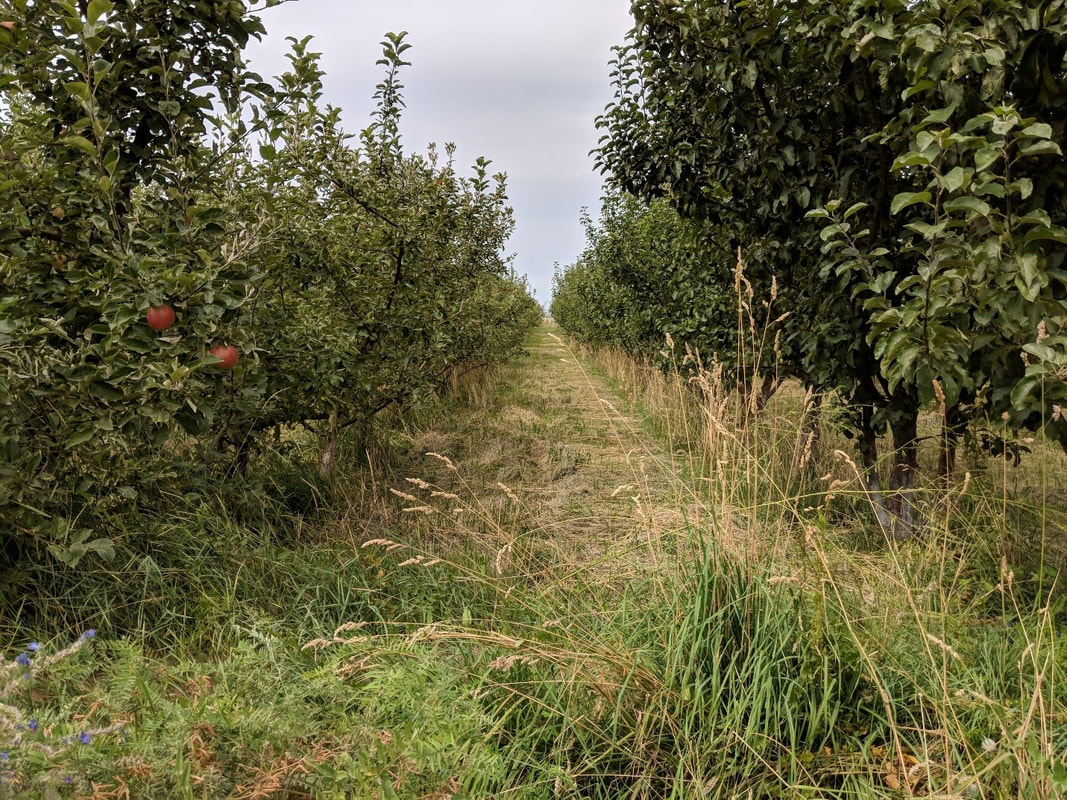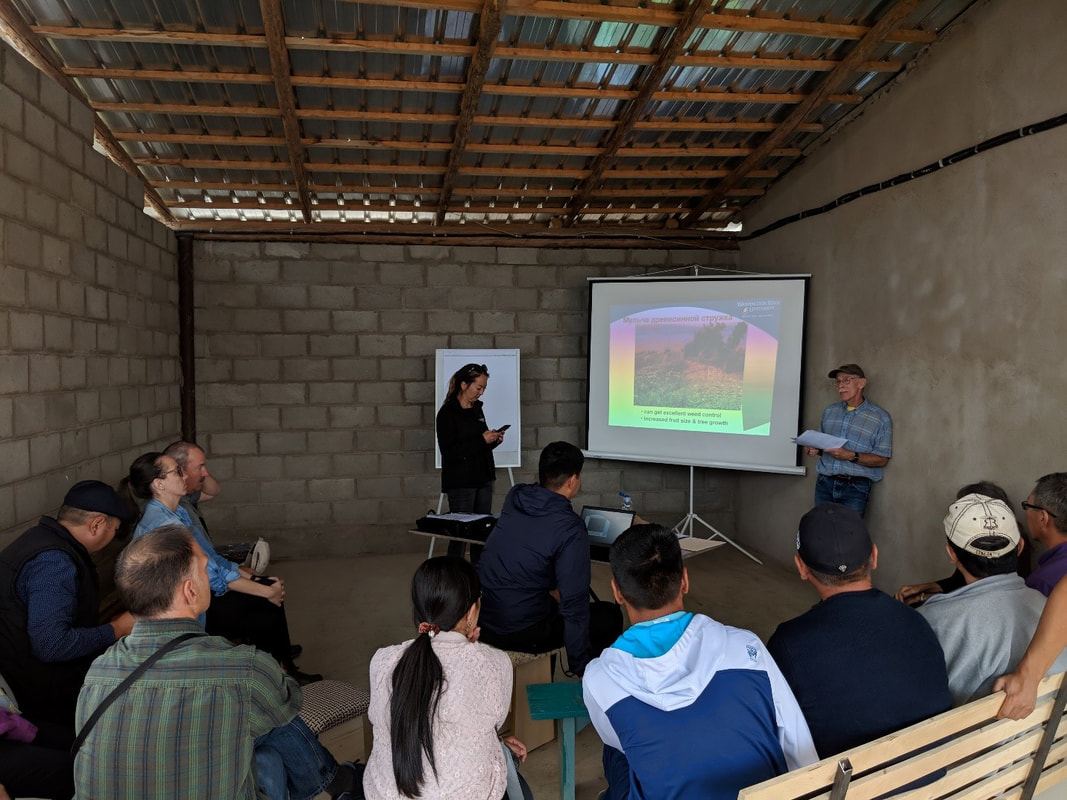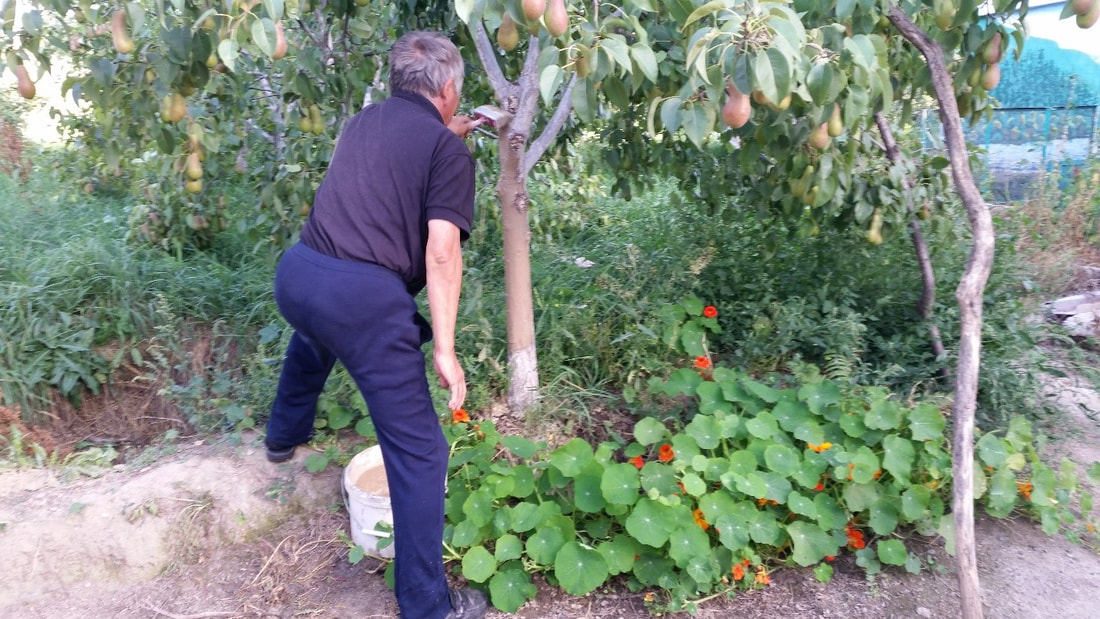AGRICULTURAL DEVELOPMENT
|
Kyrgyzstan remains an agrarian country. In 2020, an estimated 40% of the population is employed in agriculture, but farming accounts for some 20% of Gross Domestic Product. Historically, livestock production has been the primary agricultural activity, dominated by pastoral grazing systems that take advantage of forage at different elevations and precipitation zones. The Fergana Valley historically was known to produce the best horses due to the quality forage there. Large irrigation systems were developed by the Soviets and enabled expansion of crop production in the various zones, including grains, vegetables, tree fruit, and cotton. Most of this was under the state farm system, and conversion to private ownership/management proved to be an early challenge after independence. See Kyrgyzstan Country Report from the U.S. Library of Congress, Federal Research Division. |
A number of important tree fruits and nuts have their genetic center of origin in central Asia in the Tien Shan Mountains, which includes Kyrgyzstan. For example, native apple forests exist and have been explored for their genetic diversity as well as a source of biocontrol organisms for apple pests in other parts of the world. Tree fruit production is common in the country, mostly small scale. Apple production in Issyk-Kul oblast has relied on exports to Russia for its markets, and the economics for growers have not been good.
In 2010, several members of our organization who are tree fruit orchardists visited Kyrgyzstan to see some of the fruit orchards there and to see whether they could provide any assistance to help redevelop the country's tree fruit industry, which had been in decline since independence in 1991. They met with a well-known and influential Kyrgyz apple orchardist who owns 100 acres of land on which she has an apple orchard, and learned she also had a germplasm repository of local apples, a breeding program, and a nursery. Through an interpreter, they shared knowledge of apple growing and production, and the organization's members brought her a series of publications by the Washington State Fruit Commission concerning fruit growing and production.
Here several photos from that trip:
In 2010, several members of our organization who are tree fruit orchardists visited Kyrgyzstan to see some of the fruit orchards there and to see whether they could provide any assistance to help redevelop the country's tree fruit industry, which had been in decline since independence in 1991. They met with a well-known and influential Kyrgyz apple orchardist who owns 100 acres of land on which she has an apple orchard, and learned she also had a germplasm repository of local apples, a breeding program, and a nursery. Through an interpreter, they shared knowledge of apple growing and production, and the organization's members brought her a series of publications by the Washington State Fruit Commission concerning fruit growing and production.
Here several photos from that trip:


